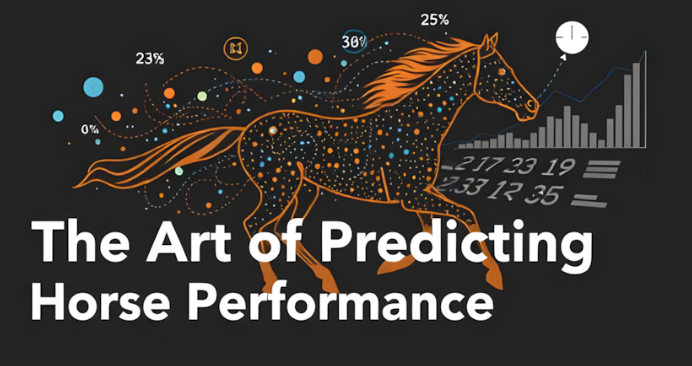You’ve probably seen “DNS” listed next to an athlete’s name in track meet results and wondered what it means. This common abbreviation stands for “Did Not Start,” and it’s one of several important terms you’ll encounter in track and field competitions. Understanding what DNS means in track events is crucial for athletes, coaches, and spectators alike.
As you dive deeper into the world of track and field, you’ll learn how DNS differs from other race results like DNF (Did Not Finish) and why these distinctions matter. This guide will explore the various reasons athletes might receive a DNS, its impact on competitors, and how it compares to other race outcomes. You’ll also discover practical insights about making the right decision when faced with potential DNS situations during your track career.
Table of Contents
- 1 Decoding Race Result Abbreviations
- 2 Common Causes of DNS in Track Events
- 3 The Mental and Emotional Impact of DNS
- 4 DNS vs DNF: Which is Better for Athletes?
- 5 Here are some FAQs about what does DNS mean in track:
- 5.1 What does DNS mean in a race?
- 5.2 What is DNS in athletics?
- 5.3 What does DNS mean in sprinting?
- 5.4 When to DNS a marathon?
- 5.5 What do DNS stand for?
- 5.6 Why would an athlete DNS?
- 5.7 What does DNS status mean?
- 5.8 Is DNF or DNS better?
- 5.9 What does DNF mean in track?
- 5.10 What are all the meanings of DNS?
- 5.11 When to DNF a race?
Decoding Race Result Abbreviations
Track and field results can sometimes look like alphabet soup with various abbreviations scattered throughout. Let’s decode these important race result abbreviations to help you better understand track meet outcomes.
DNS – Did Not Start
When you see DNS in track results, it indicates that a registered athlete didn’t make it to the starting line. In track meets, you might also hear the term “scratched,” which means the same thing as DNS. This abbreviation typically appears at the bottom of results lists, replacing what would have been a finish time. It’s particularly common in track events where pre-registration or qualification is required.
DNF – Did Not Finish
A DNF designation is distinctly different from DNS. When you see DNF next to an athlete’s name, it means they began the race but couldn’t complete it. This is important to distinguish from a DNS because it tells you the athlete actually attempted the event. DNF results are also different from DQ (disqualified), where an athlete breaks a rule during competition.
Other Common Abbreviations
Track and field uses several other important abbreviations that you’ll commonly see in results:
- SB: Season’s Best – Your highest achievement in the current season
- PB: Personal Best – Your all-time best performance
- OR: Olympic Record
- WR: World Record
- NR: National Record
- CR: Competition Rule
- TR: Technical Rule
When a performance equals a previous record, you’ll notice an equal sign (=) before the abbreviation, such as =WR or =NR. These statistical markers are crucial for tracking progress and achievements in the sport.
Understanding these abbreviations is essential whether you’re an athlete, coach, or spectator. They tell the story of what happened during competition and help track statistical information for future reference. In track events, these abbreviations serve as a universal language, helping everyone understand race outcomes regardless of their native language or experience level in the sport.
Common Causes of DNS in Track Events
Making the decision to DNS isn’t always straightforward, but understanding the common causes can help you make informed choices about your participation in track events. Let’s explore the main reasons athletes might need to take a DNS.
Pre-race injuries
Injury management is often the primary reason for taking a DNS in track events. When you’re dealing with nagging pain or a sudden injury, it’s crucial to assess the situation carefully. For instance, what starts as a minor twinge in your foot could develop into a full-blown injury that prevents you from even walking comfortably.
Pay attention to these warning signs:
- Persistent pain during normal walking
- Sharp or sudden pain during warm-ups
- Discomfort that increases with movement
- Pain that affects your normal running form
Illness or fatigue
Being under the weather before a race presents a challenging decision. While some athletes have achieved personal bests despite having a cold, pushing through illness isn’t always the best choice. Dr. Jenna Burton emphasizes, “When you are full of the common cold, it’s not as straightforward as a simple yes or no answer to whether you should participate.”
Your immune system needs energy to fight illness, and the physical demands of racing can divert these resources. Consider these factors when you’re feeling unwell:
- Presence of fever, vomiting, or diarrhea (automatic DNS)
- Severity of symptoms
- Risk of dehydration
- Impact on other competitors
Logistical issues
Sometimes, DNS situations arise from circumstances beyond your control. These logistical challenges can include:
- Transportation problems: Getting lost en route or parking difficulties
- Timing miscalculations: Arriving too late for check-in
- Registration complications: Issues with race documentation
- Venue location confusion: Mistakes about starting point locations
Greg Whyte OBE, a physical activity expert, suggests creating an “If-Then” plan: “If you wake up on race day feeling under the weather, then you will withdraw from the race and structure a return based on your symptoms and recovery.”
When dealing with potential DNS situations, it’s essential to consider both short-term and long-term implications. Missing a race is disappointing, but running when you’re not prepared or healthy enough can lead to more serious consequences. Remember that taking a DNS is often a strategic decision rather than a sign of weakness.
The key is to make your decision based on objective assessment rather than emotional attachment to the race. Consider consulting with your coach or healthcare provider if you’re unsure about participating. They can help you evaluate whether pushing through might compromise your long-term athletic goals or health.
The Mental and Emotional Impact of DNS
Receiving a DNS in your track record can feel like a heavy emotional burden, especially when you’ve invested months of training and preparation for an event. The psychological impact of not starting a race often runs deeper than many athletes expect.
Dealing with disappointment
The initial wave of emotions after deciding to DNS can be overwhelming. You might experience a mix of frustration, sadness, and even guilt. It’s perfectly normal to feel devastated, particularly if you’ve been looking forward to the event for months or even years.
When processing these emotions, remember:
- Allow yourself to feel disappointed without judgment
- Share your feelings with fellow athletes or coaches
- Focus on immediate recovery rather than dwelling on the missed opportunity
- Maintain perspective about your long-term athletic journey
Reframing the experience
Taking control of your DNS narrative is crucial for mental recovery. Instead of viewing it as “I couldn’t race,” try reframing it as “I made a strategic decision for my athletic career.” This shift in perspective can significantly impact your emotional recovery.
Your DNS can become a powerful moment of growth when you approach it with the right mindset. Consider these alternative viewpoints:
- “I protected my body for future competitions”
- “I demonstrated maturity in my decision-making”
- “I prioritized long-term success over short-term gratification”
Learning from a DNS
Every DNS carries valuable lessons that can strengthen your athletic journey. The experience often teaches you more about yourself than a successful race might have. When you’re ready to reflect, consider what your DNS reveals about:
- Your relationship with your body and its signals
- Your decision-making process under pressure
- Your ability to maintain perspective in challenging situations
Remember that even professional athletes regularly make DNS decisions. They understand that protecting their long-term career sometimes means making tough choices in the present. Your DNS isn’t a reflection of your commitment or ability – it’s often a sign of mature athletic judgment.
When you’re ready to move forward, focus on recovery like it’s your new training plan. Be aggressive in your approach to healing, whether that means physical therapy, mental health support, or simply taking the rest your body needs. This proactive stance can help transform disappointment into determination.
The mental impact of a DNS often extends beyond race day. You might find yourself questioning future race decisions or feeling anxious about similar situations. These feelings are normal, but they shouldn’t define your athletic journey. Instead, use them as building blocks for better self-awareness and more informed decision-making in your track career.
Your support system plays a crucial role during this time. While it might feel burdensome to respond to concerned messages about your DNS, remember that these check-ins come from a place of care. Be honest about your needs – whether that’s space to process or support to plan your comeback.
As you work through the emotional aspects of your DNS, maintain a training journal to track both physical and mental progress. This practice can help you identify patterns, celebrate small wins, and maintain a sense of forward momentum, even when you’re not actively competing.
DNS vs DNF: Which is Better for Athletes?
The debate between choosing a DNS (Did Not Start) versus risking a DNF (Did Not Finish) is a complex decision that every track athlete faces at some point in their career. Let’s analyze both scenarios to help you make informed choices when faced with this challenging situation.
Pros and cons of DNS
Making the decision not to start a race can be one of the most strategic choices in your athletic career. The primary advantage of DNS is maintaining control over your training cycle and preventing potential long-term setbacks.
Advantages of choosing DNS:
- Preserves your training cycle
- Prevents potential injury aggravation
- Allows quick recovery for future races
- Maintains your mental confidence
However, DNS also comes with its challenges. You might feel like you’ve let down your support system or wasted your training. Remember that your average professional runner will DNS at least twice in a calendar year, recognizing it as a strategic tool rather than a failure.
Pros and cons of DNF
A DNF presents different considerations than a DNS, as you’ve already crossed the starting line. Understanding the implications of both continuing and stopping mid-race is crucial for your long-term success.
| Aspect | DNS | DNF |
|---|---|---|
| Physical Impact | Minimal | Potentially significant |
| Recovery Time | Usually shorter | Often longer |
| Mental Effect | Initial disappointment | Can be more challenging |
| Future Racing | Preserves options | May need extended break |
When considering a DNF, remember that no one drops out of a race simply because they’re tired. Usually, there are compelling reasons like injury prevention or health concerns.
Making the right decision for your situation
To make the best choice for your circumstances, consider these critical factors:
- Assess your current condition:
- Has a medical professional advised against racing?
- Are you experiencing acute pain or illness?
- Have you missed significant training?
- Evaluate your goals:
- Is this your primary target race?
- Do you have upcoming important competitions?
- Will this decision affect long-term objectives?
Your decision should align with your overall athletic goals. If you’re training for a high-performance goal at a future race, finishing today’s event might compromise that target. Remember that “one body, many races” should be your guiding principle.
When making your decision, consider these practical questions:
- Can you attempt another race soon if things go wrong?
- Is your body truly ready, or is it just your mind pushing you?
- Are you getting the most from yourself, or are you letting fear guide your choice?
The key to making the right decision lies in self-awareness and honest assessment. If something is tangibly wrong—like being up all night with illness or dealing with acute pain—saving your taper and targeting a backup race might be your best strategy. The chances of achieving your performance goals at a B-race are much higher than forcing yourself through an compromised situation.
Remember that DNS doesn’t mean you didn’t try. If you’ve trained consistently and prepared properly, choosing not to start under adverse conditions shows maturity and strategic thinking. Think of your training like money in a savings account: you can spend it now under suboptimal conditions, or save it for when circumstances align better with your goals.
Professional athletes understand this concept well. Their job is to perform at their best, and sometimes that means making the tough call to DNS rather than risk a poor performance or injury. This approach isn’t about giving up; it’s about protecting your athletic future and ensuring you can continue performing at your best for years to come.
Smart athletes recognize DNS as a valuable tool in their competitive arsenal rather than a mark of failure. Track and field success demands more than physical preparation – it requires wisdom to make tough decisions that protect long-term athletic goals. DNS situations challenge competitors to balance their competitive drive against health and performance considerations, teaching valuable lessons about athletic maturity and strategic thinking.
Professional track careers span many seasons, and each DNS decision shapes an athlete’s journey. Race day choices reflect deeper understanding of personal limits, recovery needs, and performance optimization. Athletes who master the art of strategic DNS decisions often enjoy longer, more successful careers marked by consistent achievement rather than short-term glory. Smart competitors know their bodies, trust their instincts, and make choices that serve their athletic future.
Here are some FAQs about what does DNS mean in track:
What does DNS mean in a race?
DNS in a race stands for “Did Not Start,” indicating that an athlete registered for the race but did not begin the event. In track and field, “DNS” often appears next to an athlete’s name on the results sheet if they were unable to participate. This term, “what does dns mean in track,” reflects a common status in competitive sports.
What is DNS in athletics?
In athletics, DNS means “Did Not Start,” which signifies that an athlete did not participate in the race despite being listed as a competitor. “What does dns mean in track and field” is often used to indicate this status due to injury, illness, or personal reasons preventing the start.
What does DNS mean in sprinting?
In sprinting, DNS indicates that a registered athlete did not start the race. “What does dns in track mean” can be crucial in sprinting events, as athletes missing their start time often have no opportunity to re-enter.
When to DNS a marathon?
A runner might choose to DNS a marathon if they are unwell, injured, or inadequately prepared. Understanding “what does dns mean in track meet” helps ensure athletes prioritize their health by not starting if they’re not fit for the race.
What do DNS stand for?
DNS stands for “Did Not Start.” In the context of track meets, “what does dns mean in track” is a common notation when an athlete withdraws before the race begins, due to various reasons.
Why would an athlete DNS?
An athlete might DNS if they experience injury, illness, or a lack of preparedness before the event. This notation, “what does dns mean in track and field,” often indicates a conscious decision to avoid risking health or safety.
What does DNS status mean?
A DNS status means that an athlete did not start the race they registered for, noted as “what does dns mean in track” on results sheets. This helps clarify participation records in competitive events.
Is DNF or DNS better?
DNS (Did Not Start) is generally considered safer than DNF (Did Not Finish) because it means the athlete did not start the race, avoiding potential risks during the event. In the context of “what does dns mean in track,” DNS is seen as a precaution, while DNF may occur from pushing through physical limitations.
What does DNF mean in track?
DNF stands for “Did Not Finish,” meaning an athlete started the race but could not complete it. In “what does dns mean in track,” DNS differs because it indicates non-participation from the beginning rather than an inability to finish.
What are all the meanings of DNS?
In racing, DNS means “Did Not Start.” Outside of track and field, DNS can also refer to “Domain Name System” in networking, but in sports, “what does dns in track mean” relates to a competitor’s non-start status.
When to DNF a race?
An athlete may choose to DNF a race if they’re injured, exhausted, or in distress. Unlike “what does dns mean in track,” DNF indicates that the athlete attempted to participate but decided or was forced to stop for safety or health reasons.



